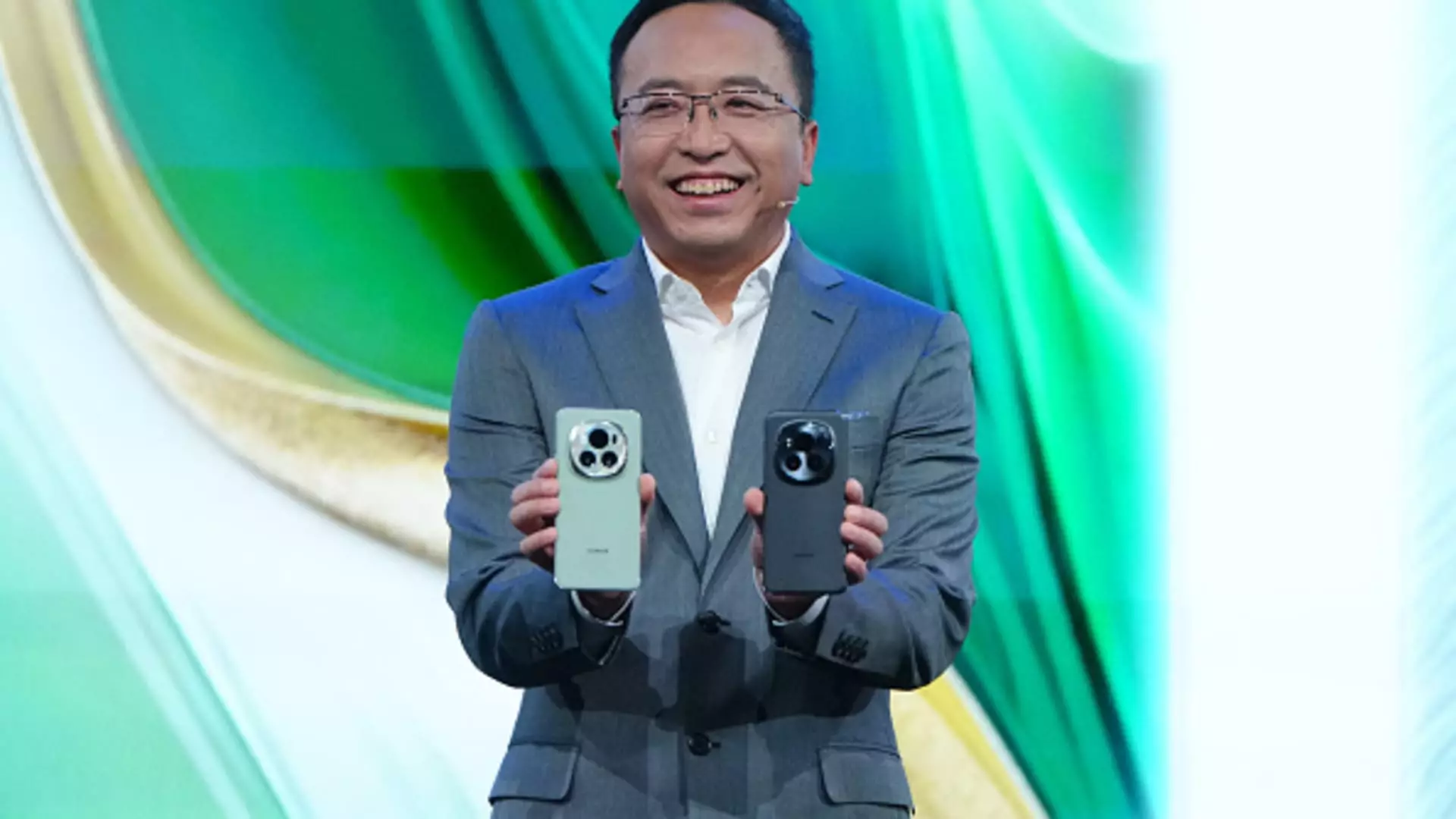The recent announcement regarding the resignation of George Zhao, Honor’s CEO, has sparked discussions about the future of the company. Honor attributed Zhao’s departure to personal health concerns, emphasizing that his decision comes with the intention of taking time to rest and spend time with family. In a corporate environment that often prioritizes pace and productivity, Zhao’s acknowledgment of personal health is a timely reminder of the balance that leaders must maintain between their professional responsibilities and personal well-being. His departure is not only significant for Honor but also sets a precedent for other executives on the importance of prioritizing one’s health.
With Zhao’s resignation, Jian Li is stepping in as the new CEO, bringing with him four years of experience in various senior management roles within the company. The transition in leadership poses both opportunities and challenges. Li’s familiarity with Honor’s operations could facilitate a seamless transition; however, he now shoulders the responsibility of advancing the company’s vision and expansion plans amidst stiff competition in the global smartphone market. Analysts are keenly observing whether Li will continue the strategic direction that Zhao established, particularly the emphasis on high-end and innovative smartphone technologies.
Zhao’s departure comes at a critical juncture as Honor is preparing for an Initial Public Offering (IPO), first mentioned earlier in 2023. This move represents a significant shift for the company, which was spun off from Huawei to avoid the repercussions of U.S. sanctions. Under Zhao, Honor successfully penetrated both local and international markets, growing its market share in China from 9.8% in 2020 to over 15% in 2024. Concurrently, its international presence grew from less than 1% to 2.3%. As Li takes over, he must not only sustain this growth trajectory but also elevate Honor’s brand recognition beyond China, as many consumers still remain unaware of the brand.
The strategic pillars that George Zhao erected will likely serve as a foundation for Li’s leadership. Analysts suggest that the future of Honor lies in its commitment to premiumization—the trend of producing high-quality, high-value products that differentiate the brand in a crowded market. Neil Shah from Counterpoint Research noted that continued innovation, particularly in foldable smartphone designs and artificial intelligence features, will be vital for Honor’s competitive edge. Maintaining robust partnerships with critical component suppliers will also be crucial in this pursuit.
The transition of leadership at Honor symbolizes more than just a change in personnel; it reflects the dynamic nature of the smartphone industry and the pressures that accompany rapid growth and competition. While Zhao’s resignation may leave a void, it also paves the way for fresh perspectives and strategies under Jian Li’s stewardship. As Honor seeks to solidify its standing both in China and internationally, the coming months will be pivotal in determining whether they can leverage their past successes to achieve sustained growth and innovation in a rapidly evolving market landscape.

Leave a Reply